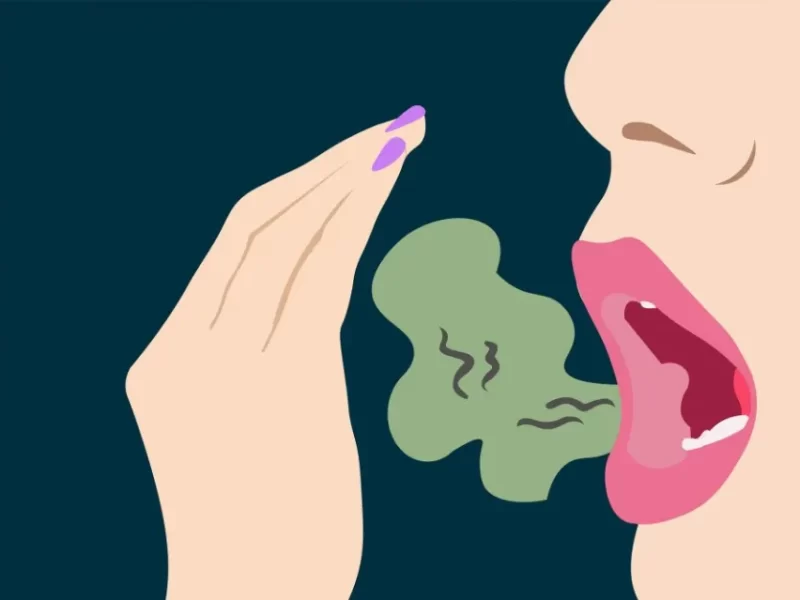Peptic ulcers are ulcers that form in the lining of the stomach or in the first part of the intestine called the duodenum. Helicobacter pylori (H. pylori) is typically to blame for them. pylori) or non-steroidal anti-inflammatory drugs ( NSAIDs) and is made worse by stress, drugs, and food.
These sores are simple to identify, but if untreated, they could worsen. Stop the pain and go to bed because fortunately, most sores can be treated at home and by a doctor in combination.
Symptoms of Stomach Ulcers
Mucus membranes that are delicate line the digestive tract and stomach. This tissue is easily aggravated after being damaged, which can result in pain and other symptoms. A healthcare provider can diagnose the cause of your pain by asking about symptoms like:
- Pain or discomfort between meals or when you eat
- Stomach pain that wakes you from your sleep
- Becoming full quickly when you eat
- Bloating
- Burning or dull pain in your stomach
- Pain that comes and goes over days or weeks
- Discomfort that lasts several minutes to hours
More severe ulcers may cause:
- Nausea
- Weight loss
- Vomiting blood
- Blood in your stool or dark stools
- Back pain

How to Sleep With Stomach Ulcer?
Build a Good Sleep Environment
To get ready for sleep, establish a regular bedtime routine. You can essentially teach your body to be sleep-ready by following a consistent routine every night. Complete a series of calming, relaxing activities that indicate sleepy time for about an hour before going to bed! For instance, you may try:
Make your sleeping area cool, quiet, dark, and comfortable. Your chances of falling asleep and staying asleep despite your discomfort increase the more snooze-friendly your sleeping environment is.
With the assistance of your doctor, treat sleep apnea and other sleep disorders. It’s a vicious cycle: stomach ulcers make it difficult to fall asleep, and lack of sleep increases the risk of gastrointestinal conditions like stomach ulcers. Treat both issues simultaneously because they are interconnected. Talk to your doctor about diagnostic and treatment options for any potential sleep disorders you may have in addition to receiving medical treatment for your stomach ulcer.
Adjusting Your Sleeping Position
If you can, lie on your back with your head raised. Gravity works in your favor when you keep your upper body elevated, potentially making it harder for stomach acid to enter and irritate your ulcer. Additionally, sleeping on your back lessens the pressure on your digestive system, which also lessens the pain of ulcers.
If you prefer to sleep on your side, lie on your left. If you prefer to sleep on your left side to your right, choose that position if lying on your back is uncomfortable. Staying on your left side could result in less ulcer pain and compression because of how your digestive system is arranged.
Instead of sleeping on your stomach, avoid doing so. The worst sleeping position for issues related to stomach acid, such as GERD or stomach ulcers, is usually this one. Try your best to get used to sleeping on your left side or back if you naturally sleep on your stomach.
Avoid Coffee and Alcohol
Historically, it was felt that spicy or acidic foods could cause stomach ulcers, but evidence points to H. pylori and NSAID use as the primary causes.12
This is not to say that dietary factors have no bearing on ulcer symptoms or development. Eating triggers the production of stomach acids. A large meal or particular foods can raise your stomach’s acid level and make an ulcer worse. This may be especially true at night due to the positioning of the stomach and the movement of acids.13
Alcohol and caffeine contribute to stomach ulcer pain and poor sleep quality.118 Avoiding certain foods that trigger ulcer pain and limiting eating before bed can help relieve ulcer pain and improve sleep.

Take over the Counter Medication
Your initial reaction to relieve the pain of a stomach ulcer might be to reach for an over-the-counter (OTC) pain reliever, but using NSAIDs is one of the main factors contributing to stomach ulcers. If you have a history of peptic ulcers or are at risk of developing an ulcer, talk to your healthcare provider about your NSAID use and consider alternative ways to manage your pain.
If you have an ulcer brought on by the H, your doctor may recommend antibiotics. pylori bacteria. Other medications to reduce stomach ulcer pain focus on reducing stomach acid or protecting your stomach lining, such as:8
- Histamine receptor blockers (H2 blockers) like Pepcid or Zantec (famotidine) and Tagamet (cimetidine)9
- Proton pump inhibitors (PPI) like Prilosec (omeprazole), Nexium (esomeprazole), Prevacid (lansoprazole), and Protonix (pantoprazole)
- Antacids
- Mucosal protective agents like Carafate (sucralfate)
While some medications, such as Protonix, require a prescription from a doctor, others, such as Pepcid and Prilosec, are available over the counter. For some people, finding relief requires a mix of prescription drugs and dietary adjustments.
Summary
More than 4 million Americans experience stomach ulcers each year, and one in ten people will experience one at some point in their lives. Ulcers are not uncommon. They can, however, cause serious complications if they are not treated. You must heed this advice if you want to get a restful night’s sleep while suffering from a stomach ulcer.
FAQs
Can Stress and Anxiety Cause Stomach Ulcers?
From numerous studies, it’s pretty clear that stress often serves as a backdrop to stomach ulcers, explains Dr. Lee. People diagnosed with this stomach condition often report high levels of stress in their daily lives. The natural reaction of your body to stress is an increase in stomach acid, which can lead to ulcers.
Can Stomach Ulcers Heal on Their Own?
Though ulcers can sometimes heal on their own, you shouldn’t ignore the warning signs. Ulcers can cause serious health issues, such as bleeding, if they are not properly treated. Perforation, which is a hole in the stomach’s wall.



